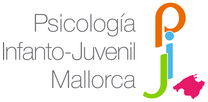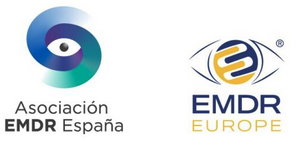
What is ADHD?
Attention Deficit Hyperactivity Disorder (ADHD) is a neurodevelopmental disorder that affects attention, impulse control, and physical activity. Although it is usually diagnosed in childhood, many people continue to have symptoms into adulthood. In fact, in recent years, the impact of ADHD on adults has been increasingly recognized.
Differences Between ADHD in Children and Adults
ADHD does not manifest in the same way in children and adults. While hyperactivity is usually more evident in children, adults tend to show other more subtle symptoms, such as inattention, difficulty managing time, difficulties managing emotions or even excessive impulsivity in daily decisions. These symptoms can affect work performance, interpersonal relationships, and overall well-being.
In adults, the most common signs include:
- Difficulty concentrating on prolonged tasks.
- Chronic procrastination.
- Disorganization in daily life.
- Trouble maintaining attention in conversations or meetings.
- Impulsivity in important or financial decisions.
How do I know if I have ADHD if I have never been diagnosed? Is it really important to have a diagnosis?
If you’ve never been diagnosed with ADHD but feel like your attention issues, impulsivity, or disorganization are affecting your daily life, you may be wondering if you might have the disorder. Often, adults who seek help do so after experiencing frustration with their difficulties in meeting work or personal responsibilities, or after noticing that their relationships are affected.
Self-assessment and key symptoms:
- Do you find it difficult to concentrate even on tasks that you consider important?
- Do you often feel overwhelmed by the number of things you have to do?
- Do you find it difficult to complete tasks without getting distracted or procrastinating?
- Do you tend to make impulsive decisions that you later regret?
- Do you have trouble remembering important details of your daily life?
The importance of diagnosis
While many people may experience some of these symptoms occasionally, having a formal diagnosis can be very important to better understand your difficulties and receive appropriate treatment. The diagnosis will allow you to access tools, therapies and, if necessary, medication that can improve your quality of life. In addition, it will help you avoid constant self-criticism, since you will understand that certain difficulties are not due to lack of effort, but due to the presence of a neurodevelopmental disorder.
Self-fulfilling prophecy and overdiagnosis on networks
Social media has amplified the conversation about ADHD, but it has also led to an excess of self-diagnosis and, in some cases, misinformation. Many people may identify with some symptoms of ADHD, such as distractibility or lack of organization, and come to the wrong conclusion that they have the disorder. Although the diagnosis serves to describe and, in some cases, explain the behavior, it should not be used as a shield to justify inappropriate behavior.
The Risk of Self-Fulfilling Prophecy
Self-fulfilling prophecy refers to how the beliefs we have about ourselves can influence our behavior. If someone, based on incomplete or incorrect information from the networks, becomes convinced that they have ADHD, they could begin to adopt behaviors that reinforce that belief, even if they do not have the disorder. For example, they might neglect their ability to concentrate and productivity, attributing everything to a diagnosis that has never been professionally confirmed.
Overdiagnosis in networks
While social media has allowed for greater awareness of ADHD, it has also contributed to the generalization of symptoms. It’s important to remember that only a mental health professional can make an accurate diagnosis. Not everyone who feels scattered or has difficulty concentrating suffers from ADHD, as these symptoms can be associated with other problems, such as anxiety, stress or insomnia.
Are there functional adults with ADHD?
Yes, many adults with ADHD manage to lead fully functional lives, although their success may depend largely on the treatment and support they receive. The key is to learn how to manage the disorder, identifying the areas where they have the most difficulties and developing strategies to cope with them. This brings us to the last point, the concept of neurodivergence.
Neurodivergent People: What Are They?
The term neurodivergent is used to describe people whose brain functions differently from the dominant neurological norm. This includes people with conditions such as ADHD, autism, dyslexia, and other cognitive differences. Being neurodivergent is not considered a disease, but a different way of processing information and experiencing the world.
ADHD-Enhanced Skills
For adults with ADHD, while many face challenges in attention and impulsivity, they can also develop unique social and emotional skills that allow them to excel in certain areas. Some examples include:
- Creativity and unconventional thinking: People with ADHD often have a unique perspective that allows them to see solutions where others see problems. This ability to think differently can be a great advantage in creative jobs, such as art, writing, or solving complex problems in the workplace.
- High ability to connect with others: Although ADHD can lead to difficulties in time management or attention, many people with this disorder develop strong social skills. They can be extremely empathetic, communicative, and skilled at establishing interpersonal relationships. Hyperactivity or impulsivity sometimes manifests itself in the form of a great deal of social energy, which can be perceived positively by your environment.
- Resilience and adaptability: Neurodivergent people are usually used to overcoming obstacles from an early age, which gives them a great ability to adapt to changing or challenging situations. This makes them resilient, able to handle adversity more easily than other people.
Neurodiversity in the work and social environment
In recent years, society has begun to increasingly appreciate the unique talents that neurodivergent people bring. Companies and communities are recognizing the value of having cognitively diverse teams, as this diversity enriches perspectives and solutions to problems.
For example, in the workplace, people with ADHD can excel in dynamic environments, where creativity and quick decision-making are key skills. The “secret” is to understand that differences are not a barrier, but an opportunity to explore skills that can benefit both the individual and the collective.
Strategies that can help adults with ADHD:
- Time structuring: Maintaining a daily routine and using tools such as agendas or reminders can help avoid disorganization.
- Mindfulness techniques: Practicing mindfulness can improve concentration and reduce impulsivity.
- Cognitive behavioral therapy: This form of therapy is highly effective in adults with ADHD, as it teaches them to better manage their thoughts and behaviors.
- Physical exercise: Staying physically active can improve concentration and overall well-being.
If you’ve been diagnosed with ADHD, think you might have it, or share your life with someone who does, and/or if you need more information, counselling or psychological support, we’re here to help.
Quico Martínez Milà
General Health Psychologist
Collegiate number: B-03457









